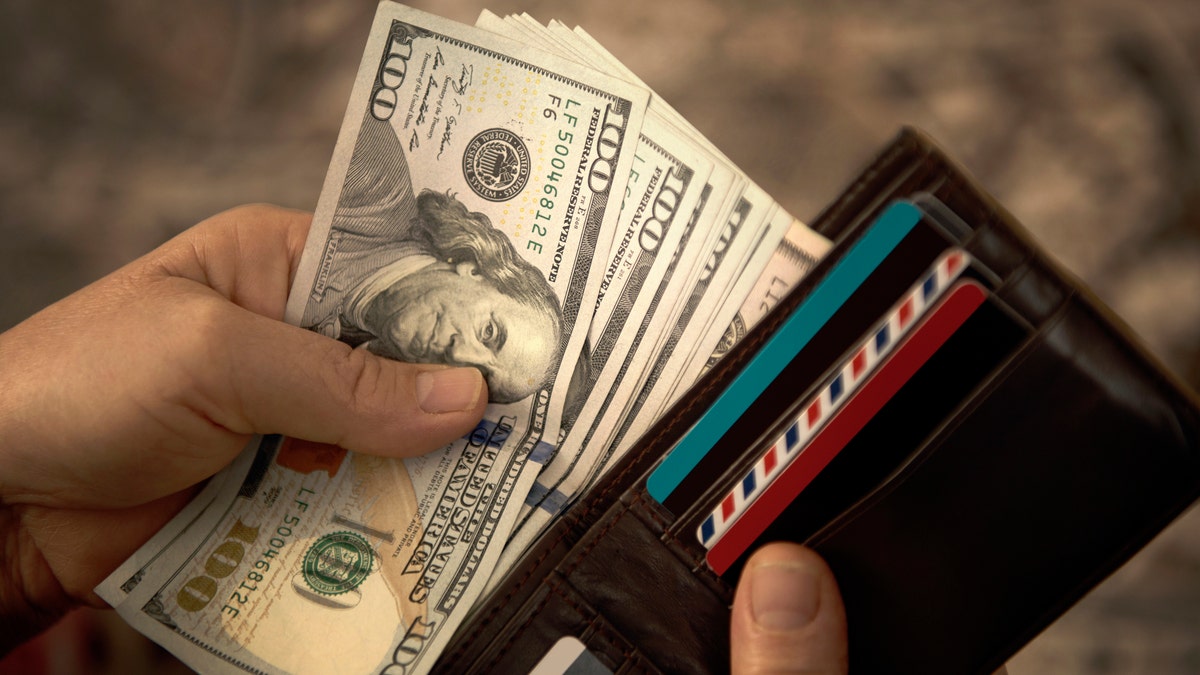Government shutdown exposed Americans' deep savings crisis
{{#rendered}} {{/rendered}}
During the month-long partial government shutdown, the press reported extensively on the financial hardships being felt by many furloughed government workers. While the media may have pointed these out to impact President Donald Trump’s approval rating, the reporting highlighted a much larger issue facing our nation.
Government has a spending addiction, and the people who foot the bill have a savings crisis.
The numbers are truly shocking. The bottom 20 percent of Americans by income have no savings, according to a Bankrate report last year. The next lowest 20 percent have an average of just $26,450 in the bank.
{{#rendered}} {{/rendered}}THE COST OF THE SHUTDOWN (SO FAR): A STATISTICIAN'S ESTIMATE
According to a CareerBuilder study, nearly 80 percent of American workers say they are living paycheck to paycheck, including 75 percent of men and 80 percent of women.
In 2017, the Federal Reserve Board reported that 44 percent of American households surveyed could not cover a $400 emergency expense.
{{#rendered}} {{/rendered}}Among millennials, 20 percent expect to never pay off their debt, according to a CreditCards.com report.
As the cost of government and the cost of living continue to rise – often fueled by taxes and regulations – Americans are struggling just to pay for basic necessities.
As of 2017, federal civilian workers had an average salary of $90,794, according to the U.S. Bureau of Economic Analysis. The average wage for the nation’s 116 million private sector workers trailed markedly behind at $61,311.
{{#rendered}} {{/rendered}}During the shutdown, leadership in certain federal agencies issued guidance for workers who were feeling the strain after one month without a paycheck.
Commerce Secretary Wilbur Ross angered some federal employees and felt the wrath of the media when he suggested that furloughed employees take out low-interest loans offered through federal credit unions.
The U.S. Coast Guard reportedly offered employees guidance that included walking dogs, having garage sales and house sitting. Use of pawn shops was reportedly on the rise among federal workers looking to sell items or obtain short-term loans.
{{#rendered}} {{/rendered}}When employees who are paid more than the average private sector worker (and receive desirable benefit packages) are resorting to loans, garage sales and other measures to pay their bills, the depth of the crisis becomes even clearer.
What’s concerning isn’t how federal workers sought access to cash – it’s the fact that they didn’t have enough savings to cover expenses while they wait for their pay reimbursements.
Americans are under-saving. They are also being overtaxed, paying a combination of federal, state, property and excise taxes, as well as tolls and other government fees. Together these costs are having a big impact on Americans’ savings rate.
{{#rendered}} {{/rendered}}According to the Peter G. Peterson Foundation, personal savings rates are at their lowest in 40 years. Americans saved an average of more than 12 percent annually in 1970. Today that rate is around five percent.
The financial stress and long-term uncertainty associated with a lack of savings are also having a negative societal impact.
The fourth annual Love and Money Survey by TD Bank polled more than 1,700 individuals across age groups and relationship status. It showed that financial stress causes nearly one in five couples of all ages to delay buying a home, with millennials leading the pack at 42 percent.
{{#rendered}} {{/rendered}}Financial stress is also often cited as one of the leading causes of divorce in America.
Massive increases in social welfare spending, and a sharp rise in state and local taxation, have had an impact on every American’s ability to prepare for the future. Cutting wasteful government spending, and increasing efficiencies at all levels of government in order to reduce taxes, are the best ways to give Americans a fighting chance at becoming more financially stable. Civic action to pressure local, state and federal officials to actually make budget cuts is essential.
Teaching financial responsibility to our young people and helping families create achievable household spending plans are also critical steps in reversing this trend.
{{#rendered}} {{/rendered}}CLICK HERE TO GET THE FOX NEWS APP
Our consumer-driven society thrives on people spending. But nothing will speed the advance of socialism and collectivism faster than personal financial strain. If we continue down this path, we will see more and more middle-class Americans, who were once financially independent, requiring government assistance for basic needs and long-term care.
Let this shutdown raise alarm bells about more than just the Southern border. This experience needs to spur action regarding the expansive dangers of this very real savings crisis.
{{#rendered}} {{/rendered}}